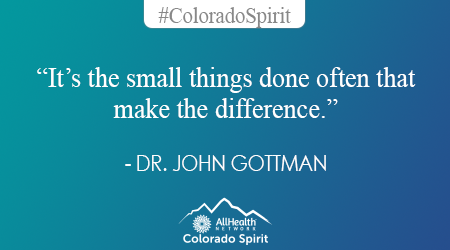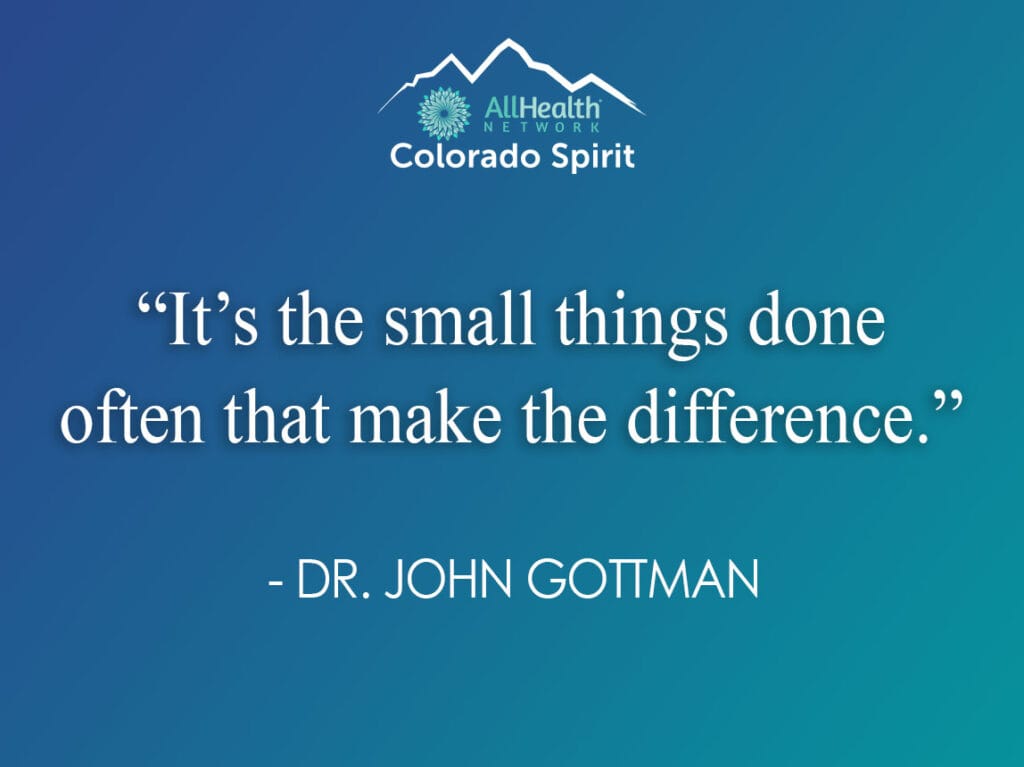Times are stressful and we know stress can have negative impacts on our close relationships. It is ironic – our relationships help fuel our resiliency and ability to weather stress AND they are most likely to suffer in times of stress. While there are many interpersonal relationships that could use extra TLC during the pandemic, we wanted to focus on some tips for relationships with partners, significant others, and spouses.
Friendly reminder, tension in these relationships is understandable and is the norm. As we mentioned in our post on Tolerating Disagreements around COVID-19, tension is a natural part of any close relationship as we are trying to balance our individual independence with the connection and dependence that is a part of a partnership. Recognizing that this dynamic is an inherent part of relationships can make it easier to acknowledge and address the tension.
No list of relationship tips is complete without some space devoted to communication. Stress can really stretch our effective communication skills, yet these skills are critical.
This is a good time to get back to the basics:
Speak to your partner about how you feel. Ask how they are feeling (and really listen to the response). Speak up about what you need, ask your partner what they need, and be willing to compromise. Look for points of agreement and focus on those when possible. Compliment your partner and make time to share the things you enjoy and appreciate about them.
While verbal communication with your partner is essential, remember that our actions speak volumes. Strategies like making time for each other, showing affection, and displaying random acts of kindness set the tone for how we engage as a couple. These things are easy to stop doing when facing stress, and yet, making a concerted effort to engage in these practices helps strengthen our connections.
A word about sex. Stress hormones can impact our sex drive and it is fairly natural for people to experience changes in their desire for sexual connection when they are facing repeated and prolonged stress. Recognizing this and finding ways to have intimate connections is important for many couples. Dr. Andrew Goliszek explains this connection in more detail, here, and offers suggestions for how couples might navigate the stress-sex connection.
Taking care of yourself and engaging in healthy habits will help your relationship! This can reduce the likelihood that we are impatient and judgmental with our partners. It can help us avoid being overly critical and snarky in ways that damage our relationship. Extend yourself grace and compassion so you can engage with your partner from your best space and be more able to tolerate feedback.
Be mindful of substance use. In times of stress and disaster, it is common for us to use mood-altering substances more. It makes perfect sense. We want to change our mood, how we feel, and substances like alcohol and marijuana do this. We know alcohol sales have increased dramatically. You can read more about that in this article here. If you or your partner’s use patterns have changed, be mindful of the impact this might have on the relationship. Also consider how communication styles might change when people have been drinking or using another substance and consider if communicating with your partner while not under the influence of anything might be helpful.
Consider if talking to someone might help. Many of my couple friends who have strong relationships talk openly about seeing a therapist from time to time for a check-in. We talk about this as a tune- up for our relationships and a place to have an objective third party help us communicate when stress levels or emotional intensity is high. Many therapists specialize in couples and family work and are available for telehealth support.
We know that conflict and strain in relationships is a complicated issue and that a list of quick tips will not fully address the real and intense struggles many of us are facing right now. At the same time, we want you to know that you are not alone and that even a slight shift to some of the basics of relationship connection can help create positive change.
Would speaking to someone help?
AllHealth Network, along with other community mental health centers, is continuing to provide services via telehealth and by phone. Our Crisis Walk-in Center remains open 24/7 and offers in-person care to those experiencing a mental health crisis. For more information and to get connected with our services, please call 303-730-8858. To learn more about what other community mental health centers are doing, please visit the Colorado Behavioral Health Council COVID-19 website.
If you are experiencing a mental health crisis and are in need of immediate assistance, please call the Colorado Crisis Hotline at 1-844-493-TALK (8255) or text TALK to 38255
How do you know if you’re experiencing a mental health crisis? Click here to learn about mental health crisis warning signs to look out for from the National Alliance on Mental Illness (NAMI)
Resource Links
- Marriage.com – Healthy Relationship Tips to Avoid a Relationship Pandemic During COVID-19
- Psychology Today – Relationship Resilience During COVID-19 Confinement
- Marriage.com – How To Maintain Relationships During COVID-19 – Expert Advice
- Women’s Health – 10 Things a Couples Therapist Wants You To Know About Making Your Relationship Survive COVID-19 Lockdown
- Psychology Today – 5 Tips for Couples During COVID-19


